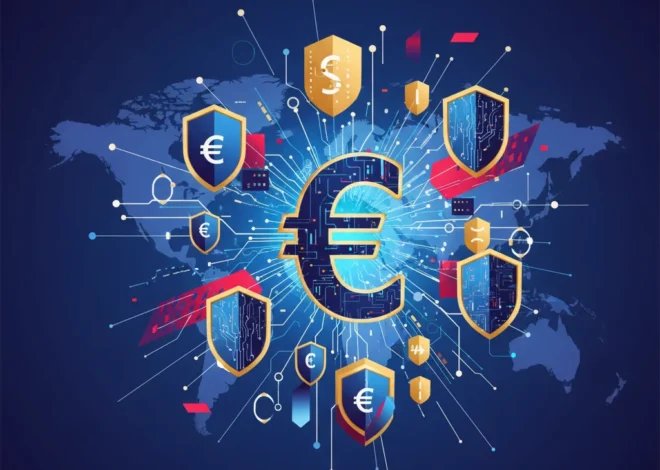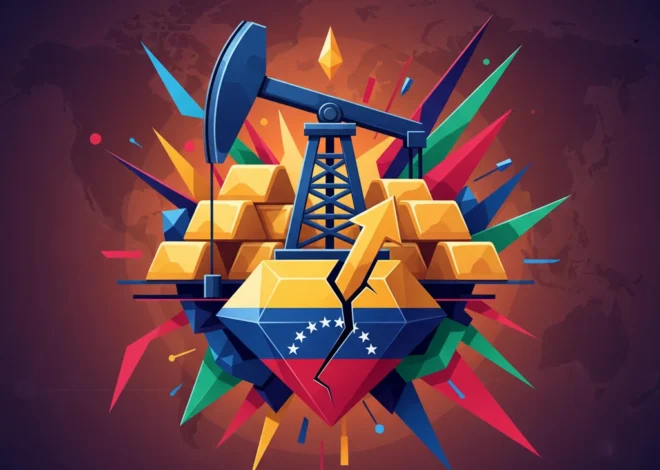
Libya’s High-Stakes Bet: Is the World Ready to Invest in Africa’s Largest Oil Reserves?
A Sleeping Giant Stirs: Libya Re-enters the Global Energy Arena
For nearly two decades, Libya, a nation sitting atop Africa’s largest proven crude oil reserves, has been a ghost in the global energy market—a land of immense potential shackled by political chaos. Since the last exploration auction in 2005, the country has been defined more by civil war and fractured governance than by its geological wealth. But the winds may be shifting. In a move sending ripples through the world of international finance and energy, Tripoli is launching its first oil and gas exploration auction in 18 years, a bold invitation for the world’s energy giants to return.
Libyan officials have been on a quiet but determined diplomatic tour, most notably visiting Washington to court American supermajors. Their pitch is compelling: a treasure trove of untapped resources, significantly improved contractual terms, and a window of relative political stability. The goal is ambitious—to boost national production from a respectable 1.2 million barrels per day (bpd) to a formidable 2 million bpd. This isn’t just about oil; it’s about rebuilding a national economy, securing a future, and reclaiming a pivotal role in the global energy landscape. For investors, business leaders, and market analysts, the question is stark: Is this a generational investment opportunity or a high-stakes gamble in one of the world’s most volatile regions?
The Unrivaled Prize: Sizing Up Libya’s Black Gold
To understand the magnitude of this development, one must first appreciate the sheer scale of Libya’s reserves. With an estimated 48 billion barrels of proven crude oil, the country holds more than any other nation in Africa and ranks in the top ten globally. Yet, much of its territory remains remarkably underexplored due to decades of sanctions under Muammer Gaddafi followed by the post-2011 civil strife. Experts believe the undiscovered potential could be astronomical.
The current initiative, spearheaded by Libya’s National Oil Corporation (NOC), aims to unlock this potential by offering 12 onshore and offshore blocks. The government’s push to increase production by over 60% is not just a target; it’s a strategic necessity to fund national reconstruction. The proximity to key European markets gives Libyan crude a significant logistical advantage, making it a highly sought-after commodity if stability can be guaranteed.
To put Libya’s current output and potential in perspective, consider its position relative to other major OPEC producers.
| OPEC Member | Proven Crude Oil Reserves (Billion Barrels) | Approx. Daily Production (Million bpd) | Production Potential |
|---|---|---|---|
| Saudi Arabia | 267.1 | ~9.0 | High, with significant spare capacity |
| Iraq | 145.0 | ~4.3 | Significant growth potential |
| UAE | 113.0 | ~3.2 | Expanding capacity |
| Libya | 48.4 | ~1.2 | Targeting 2.0 (High growth potential) |
| Nigeria | 37.0 | ~1.4 | Struggling with underinvestment |
Data compiled from various industry sources for comparative purposes.
This renewed push is not merely about opening the doors. The NOC has revised its investment models, moving toward production-sharing agreements that are more aligned with international standards and more attractive to foreign capital. This signals a pragmatic shift, acknowledging that in today’s competitive investment climate, favorable terms are essential to overcoming perceived risk.
The real question for a CFO at Shell, Total, or ConocoPhillips isn’t just about the geology, which is undeniably world-class. It’s about political survivability. Can the Tripoli-based government guarantee a contract signed today will be honored by a different political faction five years from now? This is where the nature of the investor becomes critical. We may see state-backed enterprises, less beholden to quarterly earnings and the whims of the public stock market, take the lead. They can play a longer, more patient game. For publicly traded Western majors, the ESG (Environmental, Social, and Governance) pressure is another immense hurdle. How do you justify a multi-billion dollar investment in a nation with a fraught human rights record and political instability to a board and shareholder base increasingly focused on green energy and corporate responsibility? This auction isn’t just a test of Libya’s stability; it’s a test of the modern energy investor’s appetite for complex geopolitical risk.
Ghosts of the Past: Navigating a Labyrinth of Risk
No amount of geological potential can erase the profound risks associated with investing in Libya. The country remains politically fractured, with a powerful administration in the east challenging the authority of the internationally recognized government in Tripoli. This fundamental division has been the source of conflict for over a decade and remains the single greatest threat to long-term stability.
International oil companies (IOCs) that have remained in the country, such as Italy’s Eni and France’s TotalEnergies, have firsthand experience with the operational hazards. Production has been repeatedly halted by blockades, protests, or direct conflict, leading to declarations of force majeure—a legal clause absolving companies of their contractual obligations due to unforeseen circumstances. These disruptions create massive uncertainty for revenue forecasting and project finance, making long-term capital commitments exceptionally difficult.
A clear-eyed assessment requires weighing the immense opportunity against these significant threats.
| Potential Rewards | Pervasive Risks |
|---|---|
| Access to Africa’s largest, underexplored reserves | Deep-seated political division (East vs. West) |
| Low finding and development costs per barrel | High risk of production shutdowns and force majeure |
| Strategic proximity to European energy markets | Security threats to personnel and infrastructure |
| New, more favorable investment terms | Uncertainty over long-term contract sanctity |
| First-mover advantage in a re-emerging market | Complex web of international interference |
The fact that this is the first licensing round since before the 2011 revolution underscores the long shadow of instability that has deterred new exploration. Potential investors will be watching not only the Libyan government but also the external powers—like Turkey, Russia, Egypt, and the UAE—that hold influence with various local factions.
Beyond the Sparkle: Reforming the Diamond Trade for a New Era of ESG and Geopolitical Risk
The Ripple Effect: Global Economic and Financial Implications
Libya’s re-emergence is more than a story about energy; it’s a significant event for the global economy and financial markets. The successful addition of 800,000 bpd to global supply would act as a moderating force on oil prices, potentially easing inflationary pressures in energy-importing nations. For oil trading desks, Libyan production will once again become a key variable, with every political development in Tripoli or Benghazi having the potential to move markets.
The finance and banking sectors will play a crucial role. Funding multi-billion dollar exploration and production projects in such a high-risk environment requires sophisticated project finance structures, political risk insurance, and potentially the backing of development finance institutions. This is where modern financial technology could play a transformative role. The implementation of transparent, auditable payment systems—perhaps leveraging elements of blockchain technology—could help ensure that oil revenues are managed responsibly and distributed equitably. This would not only mitigate corruption risks but also build confidence among international investors and the Libyan populace alike.
For the broader stock market, the success of this auction could provide a significant boost to the valuations of participating energy companies. An investor who takes a calculated risk on Libya and secures a major find could see their stock price surge. Conversely, any major setback could serve as a cautionary tale, reinforcing the market’s aversion to geopolitical risk.
The Final Verdict: A Calculated Risk Worth Taking?
Libya stands at a historic crossroads. The decision to open its doors to the world is a profound statement of intent—a desire to move beyond a decade of conflict and leverage its natural wealth for national recovery. The geological prize is undeniable, and the strategic importance is clear. For the global energy industry, it represents one of the last great onshore conventional exploration frontiers.
However, the path forward is laden with uncertainty. The ghosts of the past—political division, insecurity, and operational disruption—have not been fully exorcised. The success of this venture will depend on the Tripoli government’s ability to maintain stability, honor its commitments, and convince the world that this time is different. For investors, the decision will come down to a cold, hard calculation of risk versus reward. The coming months will be telling. The level of interest in the auction and the names of the companies willing to place their bets will be the first true indicator of whether the world is ready to reinvest in Libya’s future. The stakes, for both Libya and the global energy market, could not be higher.
The Arctic's New Cold War: Why Undersea Cables Are the Frontline for the Global Economy


